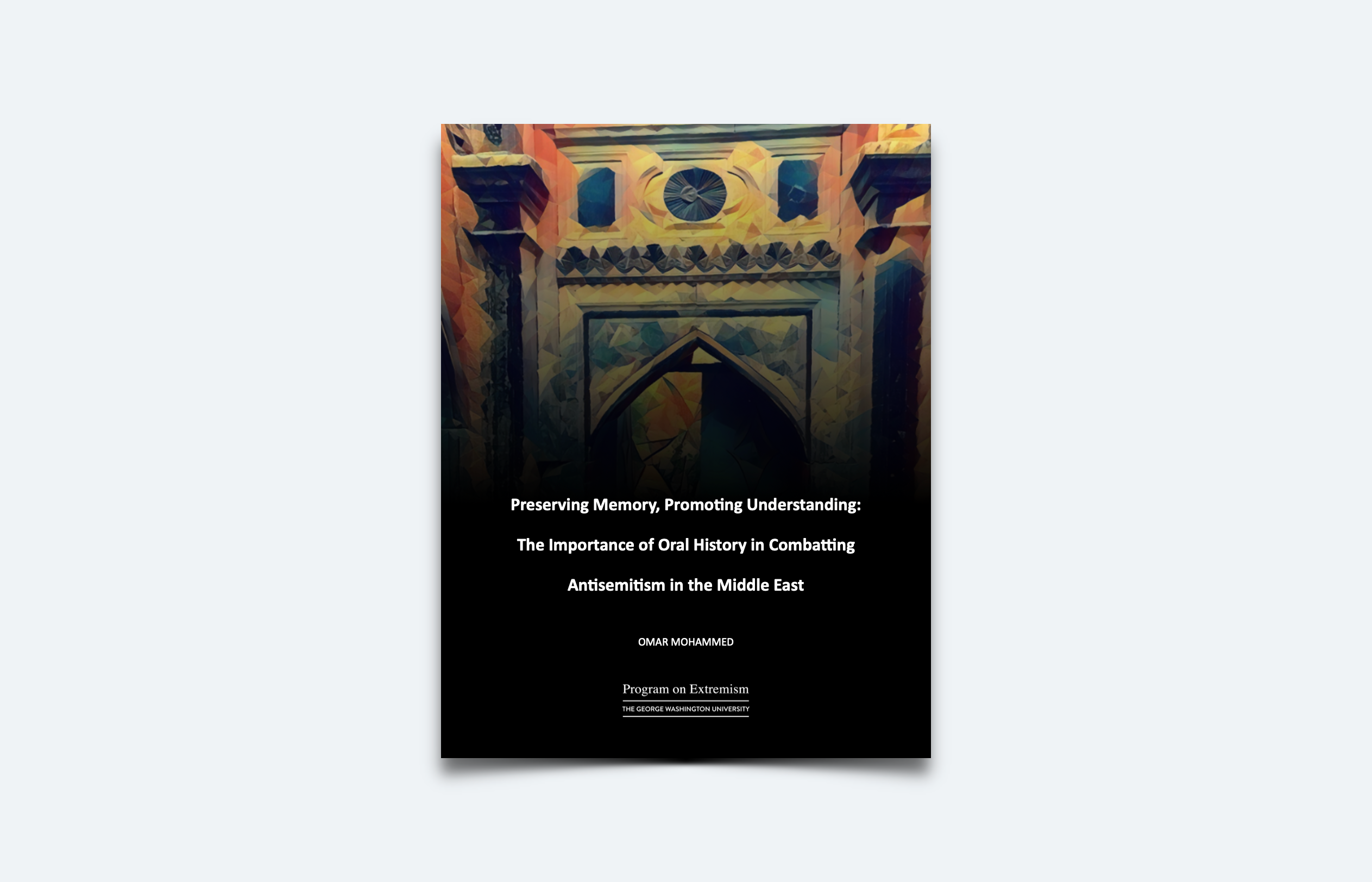This article explores the importance of oral history in understanding the roots of antisemitism in the Middle East, with a focus on the Mosuli Jewish community. It also discusses the relationship between antisemitism and terrorism, as well as the benefits of oral history documentation for Jewish and Muslim communities in the Middle East. Finally, it emphasizes the need for the Middle East to reconcile with its past to establish a better future for all.
ANTISEMITISM IS A LONG-STANDING ISSUE THAT STILL PLAGUES THE WORLD, particularly in the Middle East. The Mosuli Jewish community is a prime example of this phenomenon. For over 2,500 years the Jewish community thrived in Mosul, Iraq, but faced persecution and forced migration in the 20th century that led to the near extinction of the Jewish community in the region. The survivors' testimonies, preserved through oral history, reveal the rich cultural heritage, the community's plight, and the roots of antisemitism in the region.
The peaceful existence of the Mosuli Jewish community was interrupted in the 20th century due to the rise of nationalism and the Arab-Israeli conflict. Survivors’ testimonies revealed the harsh treatment they faced, including discriminatory laws, pogroms, and forced migration. Community members outlined how they were denied access to certain professions, and how their businesses were targeted and subjected to physical attacks. Others detailed how they were forced to leave their homes, schools, and synagogues, destroying the Mosuli Jewish culture as they fled the city in response to the persecution.
The Mosuli Jewish community's resilience, faith, and cultural heritage offer a model for coexistence in the face of adversity. Many survivors have testified to how their shared faith helped them persevere through their traumatic experiences as a community. They emphasized the importance of protecting their rich and diverse cultural heritage by preserving their memories through oral history and sharing their experiences with the world.
Antisemitism is a persistent concern that continues to plague the world. Terrorist groups employ antisemitism in their ideology and propaganda, promoting hate and violence. For example, a recent publication in a terrorist group's newsletter included the headline "Kill the Jews," along with a graphic of a knife dripping with blood. This rhetoric is a tactic used to incite violence and gain support from extremists.
Antisemitism can only be combatted with collective effort. Oral history is a powerful tool for understanding the roots of antisemitism and preserving marginalized communities' memories. The testimonies of the Mosuli Jewish community provide valuable insights into the community's experiences and the lessons we can learn from these stories. These lessons are essential in preventing history from repeating itself. Survivors of the Mosuli Jewish community emphasize the need to promote understanding and respect for different cultures and beliefs by prioritizing education and awareness. Thus, preserving their cultural heritage through oral history is crucial to combat antisemitism and promote a more inclusive society.
Sassoon Synagogue, the only surviving synagogue in Mosul.
Reconciling with the Past to Establish a Better Future for All
Oral history is a powerful tool that can be used to document the experiences of marginalized communities, promote understanding, and combat discrimination. Preserving the memories of marginalized communities, like the Mosuli Jews, can enable communities to reconcile their past to promote a better future.
Many other Jewish and Muslim communities have faced discrimination and persecution throughout the Middle East, and their stories are equally important to preserve. For example, the Iranian Jewish community, which has a rich history of over 2,500 years, has recently faced intense persecution and discrimination. By preserving the memory of Muslim and Jewish communities through oral history, we can better understand the roots of antisemitism and discrimination, the current challenges these communities face, and promote greater understanding between Muslim and Jewish communities.
The benefits of oral history documentation are significant. We can combat discrimination and promote greater understanding between cultures and beliefs today by preserving the memory of marginalized communities. Through these programs, we can create awareness about the importance of preserving cultural heritage and acknowledging the contributions of marginalized communities to the collective regional history and culture. Moreover, oral history documentation can help to recognize and reconcile with historical wrongs, which is essential for establishing a better future. By acknowledging past injustices and marginalized communities' contributions to a region’s history, we can work towards a more inclusive society that values diversity and promotes understanding.
There is a significant need for more oral history documentation programs in the Middle East focused on marginalized communities, including Jewish and Muslim communities. These programs can help to combat discrimination, promote understanding, and reconcile with the past, establishing a better future for all. By preserving the memories of these communities, we can ensure that their contributions to history and culture are acknowledged and celebrated.



